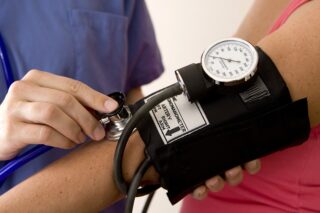Atrial flutter is common arrhythmia that sometimes occurs in conjunction with atrial fibrillation. Because it is so commonly associated with AFib, it is sometimes difficult to spot. If you suspect you are at risk for this condition, it is important to learn about the symptoms you could experience, who is most at risk, and what treatment options are available.
What is Atrial Flutter?
According to the Heart Rhythm Society, atrial flutter (AFL) is an arrhythmia that causes the atria of your heart to beat faster than the ventricles. Although it is similar to AFib, patients experience a fast, steady heartbeat rather than an irregular heartbeat. Typical cases of AFL can cause the atria to beat at a rate of 200 to 300 beats per minute, which can drive your overall pulse rate up to 150 beats per minute.
Know the Signs and Symptoms of Atrial Flutter
Symptoms of AFL can vary widely from patient to patient. The American Heart Association has highlighted the following as possible symptoms of atrial flutter:
- Chest pain or angina
- Lightheadedness, dizziness or fainting
- A steady, quick pulse
- Shortness of breath
- Heart palpitations
In most cases, patients report feeling tired and short of breath. However, some cases of AFL present with no symptoms at all or extremely severe symptoms like a feeling of impending doom or a loss of consciousness.
Are You at Risk?
Atrial flutter is most commonly found in patients with a previous history of heart problems, including heart failure, prior heart attacks, congenital heart defects or diagnosed atrial fibrillation. There are, however, several conditions that can cause AFL, which include:
- Thyroid dysfunction
- Lung disease
- Diabetes
- Alcoholism
- Long-term severe illness
If you are experiencing symptoms or you feel that you may be at risk, your best option is to check with heart rhythm consultants for more information.
What Treatments are Available?
Certain medications, including B-blockers and calcium blockers, can be used to manage atrial flutter. Some anti-arrhythmic medications can also help your heart maintain a normal rhythm.
Cardioversion is another treatment that can help. During this treatment, your doctor will attempt to restore a normal heart rhythm by administering a shock to the chest.
A catheter-based procedure known as ablation may be recommended either as a first-line therapy or if other treatment options have failed. Catheter ablation is extremely successful in producing long-term results. An electrophysiologist will use an electrical current to permanently destroy the malfunctioning tissue causing your atrial flutter.
If you have questions about atrial flutter, or you’d like to find out more about available treatment options, Dr. Dilip Mathew is an experienced electrophysiologist serving Sarasota, Venice and the surrounding areas. To schedule an appointment at Heart Rhythm Consultants, call 941-210-0950 today.



